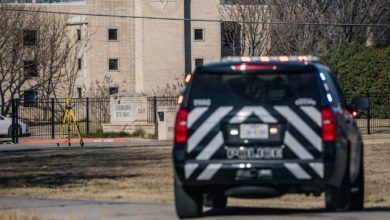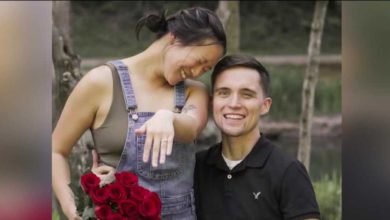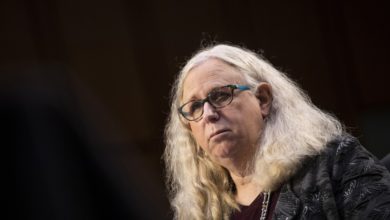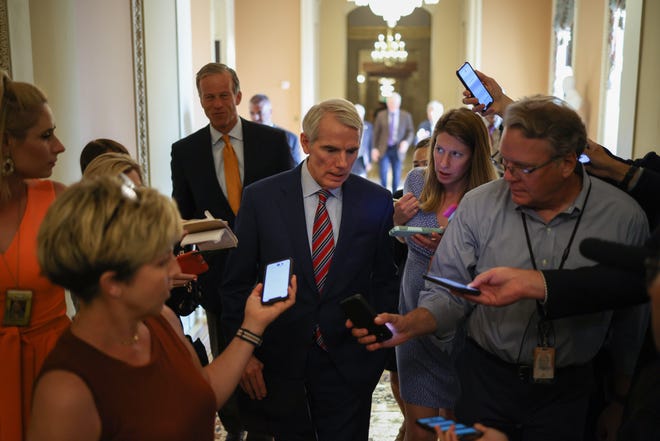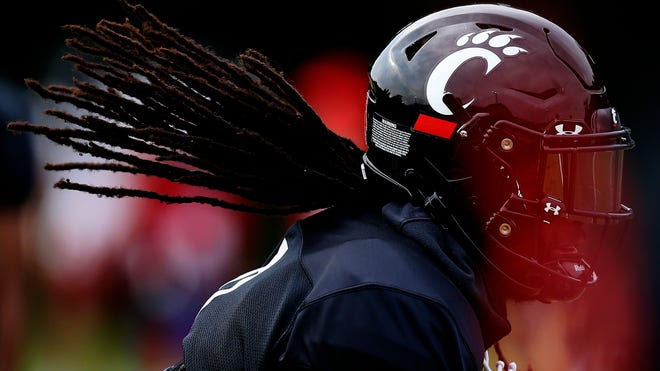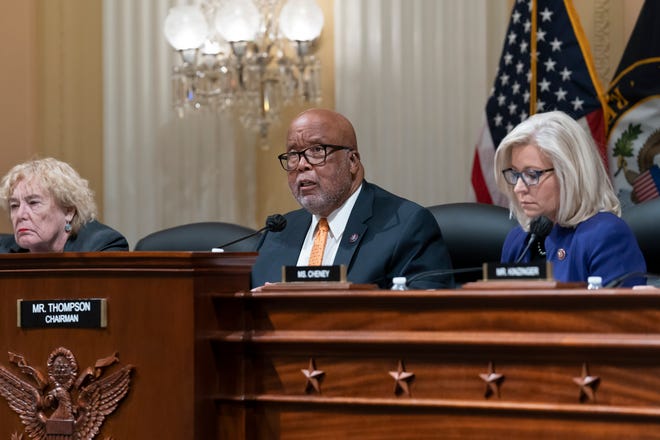
WASHINGTON – A former top Justice Department official accused of using his position to try to overturn the 2020 election made an abbreviated appearance before a House committee investigating the Jan. 6 attacks Friday, indicating he would not answer key questions about his work during the Trump administration.
Jeffrey Clark, a former acting assistant attorney general during the final days of the Trump administration, submitted a letter to the committee through his attorney claiming that he would decline to testify, citing former President Donald Trump's assertion of executive privilege.
The former Justice official, who has emerged as a central figure in the former president's efforts to deny President Joe Biden's election, had been subpoenaed to discuss his efforts to enlist the Justice Department in an effort to sow doubt in election results in Georgia.

“Mr. Clark’s complete failure to cooperate today is unacceptable," said House Select Committee Chairman Bennie Thompson, D-Miss. "His refusal to answer questions about the former President’s attempt to use the Department of Justice to overturn the election is in direct contrast to his supervisors at the Department, who have come in and answered the committee’s questions on these important topics.
"It’s astounding that someone who so recently held a position of public trust to uphold the Constitution would now hide behind vague claims of privilege by a former President, refuse to answer questions about an attack on our democracy, and continue an assault on the rule of law. As prescribed by the House Rules, I have considered Mr. Clark’s claim of privilege and rejected it."
Thompson warned that Clark had "a very short time to reconsider and cooperate fully" before the panel weighed other punitive measures.
More:Rep. Liz Cheney says Jan. 6 committee has conducted more than 150 interviews
Clark's attorney, Harry MacDougald, declined comment Friday following the shortened House session. A source familiar with the matter confirmed that the panel had received MacDougald's letter outlining Clark's refusal to answer the committee's questions.
The contents of the letter were first reported by Politico.
Clark's action creates new drama for a committee which already has held former Trump adviser Steve Bannon in contempt for refusing to cooperate with the panel's request for testimony and documents.
The contempt citation was referred to the Justice Department for possible criminal prosecution, but there has been no public decision on whether federal authorities will pursue the case.
Trump also is pressing a lawsuit challenging the committee's request for documents, claiming the demand was "sweeping" in scope and violated his privilege authority. A ruling is pending in that case after a federal judge heard arguments Thursday.
For his part, Clark was featured prominently in a damning Senate Judiciary Committee report last month that found he attempted to countermand the top leaders at the department by drafting a letter to Georgia officials seeking to delay the state's certification of election results.
According to the Senate committee report, Clark sought to enlist then-acting Attorney General Jeffrey Rosen to assist in "Trump’s election subversion scheme," telling Rosen that he would decline Trump's offer that he take Rosen's place if Rosen agreed to join.
The Senate report also recounted a contentious Jan. 3 Oval Office meeting when Richard Donoghue, then-acting deputy attorney general, warned that a mass resignation of Justice Department officials and federal prosecutors would follow if Trump moved to replace Rosen with Clark to aid the president's election subversion scheme.
During the three-hour meeting, then-White House counsel Pat Cipollone and deputy counsel Patrick Philbin also threatened to tender their resignations, reportedly calling Clark's efforts to pursue unfounded voter fraud allegations as “murder-suicide pact.”
Since Jan. 6, Trump and allies have repeatedly worked to downplay the violent events of that day, and criticized congressional efforts to investigate the violence at the Capitol. Trump has called the investigation "the Unselect Committees Witch Hunt on the events of January 6th."
Source link

